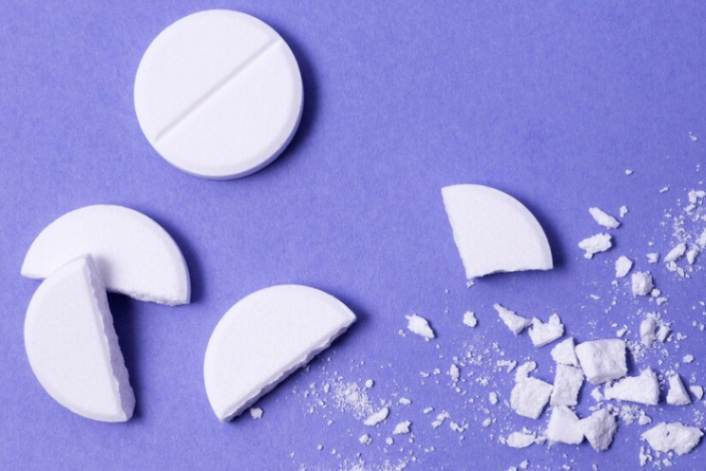Nobody wants to talk about it, as bad or foul-smelling gas can be embarrassing and annoying, especially when it occurs often. When it does occur, you may look for the best home remedy for bad-smelling gas fast before visiting a doctor. Whether it’s about something you ate or an upset stomach, several home remedies can help eliminate gas issues. This blog will comprehensively guide you on those natural remedies. We’ll also know what causes gas and what preventive measures to take. Read on!
Best Home Remedies for Bad Smelling Gas Fast
Try these fast-acting home solutions for foul gas. However, if your gas issue does not go away or bother you, see a doctor.
1. Ginger
-
Ginger hastens digestion and soothes your digestive tract, which allows gas to move more smoothly to your lower intestine.
-
Moreover, it reduces the release of sulfur-containing gas that causes odor.
How to use:
-
Chew a raw piece of ginger.
-
Sip ginger tea
-
Try ginger supplements
2. Peppermint
-
By stimulating peristalsis (wave-like muscle contraction of the digestive tract), peppermint helps release gas.
-
In addition, its anti-bacterial and anti-inflammatory effects aid in relieving bad-smelling gas.
How to use:
-
Drink peppermint tea.
-
Take peppermint oil capsules.
3. Probiotics
-
Helps break down food, which lowers the amount of undigested food that contributes to gas production.
-
Also, probiotics nourish the gut with good bacteria that overcome gas-producing bacteria.
How to take:
-
Have probiotic-rich foods like yogurt, kimchi, kefir, and sauerkraut.
-
Try supplements with strains such as Lactobacillus and Bifidobacterium.
-
Have probiotic drinks such as kefir or kombucha.
4. Apple Cider Vinegar
-
The acidic nature of apple cider vinegar (ACV) can help improve digestion, which reduces gas-producing bacteria.
-
In addition, its antimicrobial effect can further aid in relieving gas by fighting off bacteria that cause gas.
How to use:
-
Add 1-2 tablespoons of ACV to a cup of warm water.
-
Drink it before or after meals.
5. Fennel Seeds
-
The insoluble fibers found in fennel seeds help alleviate the amount of gas released in the gut.
-
Also, they contribute to the relaxation of gastrointestinal tract muscles, relieving gas and bloating.
How to use:
-
Chew 1 teaspoon of fennel seeds in the morning or after meals.
-
Drink fennel tea.
-
Use the seeds as a spice in your recipe.
6. Exercises
-
By stimulating intestinal movement, exercise can help push trapped gas through the digestive tract and eliminate it from the body.
-
Also, exercise boosts overall digestion, which lowers the amount of released gas.
Exercises to practice:
-
Walking, jogging, cycling, squats, crunches, and burpees.
-
Yoga poses like a happy baby, downward dog, and child's pose.
7. Baking Soda
-
By neutralizing stomach acid, as baking soda is alkaline in nature, it can neutralize increased stomach acid, which reduces acidity that forms gas.
-
Also, it alleviates the risk of the formation of gas bubbles in the stomach, which helps with the easy passage of the gas.
How to use:
-
Mix half a teaspoon of baking soda in water and drink it.
-
Do not take more than 1/2 teaspoon at a time, as it can lead to irregular heartbeats or stomach rupture.
8. Abdominal Massage
-
By stimulating digestive muscles, abdominal massage can quickly encourage the gas to move through the intestines and out of the body.
-
Also, it provides a calming effect on the entire digestive system, which prevents spasms and stress that can contribute to gas.
How to do:
-
Rub the abdominal area gently in a circular motion.
-
Make the massage movements in the shape of "I, L, U, and O" in the direction of the small intestine and colon.
9. Change your Diet
Consider these tips to adjust your diet:
-
Limit carbonated drinks: Examples include sparkling water and soda, which contribute to the excessive formation of gas and bloating.
-
Monitor food intolerances: Eliminate dairy or gluten-rich products if you are intolerant to them, as they can cause gas. Also, avoid gas-producing foods such as broccoli, cabbage, lentils, and beans.
-
Reduce high sulfur-rich foods: Examples are garlic, eggs, and broccoli, as they lead to produce strong-smelling gas.
-
Consider a low FODMAP diet: This diet involves limiting high fermentable carbohydrate-rich foods like dairy, grains, sugars, and sweeteners, as the body can't digest them easily and cause gas.
-
Consume fermented foods and probiotics: Eat foods that reduce gas odor, for example, fermented foods like kimchi, yogurt, and sauerkraut, and low-sugar fruits & vegetables such as apricots, peaches, tomatoes, and carrots.
10. Hydration
-
Research reports that staying well-hydrated prevents constipation which contributes to smelly farts or gas.
-
So, aim to drink 2.5-3.5 liters a day to soften the stool and make their passage easy.
“Quick Tips to Prevent Smelly Gas”
-
Avoid sulfur-rich foods to prevent gas production.
-
Eat slowly to prevent swallowing of excess air.
-
Stay hydrated to ease digestion.
-
Avoid drinking carbonated beverages.
Medical Treatment for Bad Smelling Gas
If the home remedies do not work, seek medical help. The doctors can help provide the following treatment options:
Over-the-Counter (OTC) Medications
By managing the underlying cause of gas production or expelling the trapped gas, OTC medicines can eliminate trapped gas. Common OTC medications include:
-
Simethicone: The examples are Gas-X, Mylanta Gas, and Mylanta Gas Minis. They break down the gas bubbles formed in the digestive tract and make the passage of gas easy through farting or burping.
-
Activated Charcoal: It absorbs gas trapped in the stomach, reducing gas and discomfort. Always take it before meals.
-
Lactase Supplements: Examples include Dairy Ease and Lactaid. A study says that people with lactose intolerance can take lactase supplements. They provide the enzyme lactase that helps digest lactose found in dairy products, thus relieving gas.
-
Alpha-galactosidase: Examples are beano and BeanAssist. They assist in breaking down carbs found in certain vegetables, like beans, which prevent gas production.
Prescription Medications:
-
Antibiotics: Manage the overgrowth of bacteria in the intestines.
-
Medications for underlying conditions: Linaclotide or Lubiprostone to treat IBS, which is a common cause of smelly gas.
Lifestyle Adjustments:
-
Avoid triggering foods, such as sulfur-rich foods and carbonated drinks.
-
Avoid chewing gum, drinking carbonated drinks, and sucking on hard candy as they lead to air swallowing.
-
Eat smaller and more frequent meals to improve digestion.
-
Chew food slowly to ease digestion.
-
Exercise regularly to enhance digestive function.
Causes of Smelly Flatulence
The following factors can contribute to smelly gas:
-
food intolerances
-
constipation
-
high-fiber and FODMAP-rich diet
-
sulfur-rich foods
-
underlying digestive disorders like Irritable Bowel Syndrome (IBS) and lactose intolerance
-
certain medications like antibiotics and laxatives
-
Eating or drinking too quickly
-
infections and bacteria in the digestive tract, such as small intestine bacterial overgrowth (SIBO)
-
Other disorders, like celiac disease or colon cancer.
When to See a Doctor?
Foul-smelling gas is generally not a matter of concern. The mentioned home remedies can help. However, in some cases, where the gas lasts long and accompanies the following symptoms, seek medical help:
-
stomach pain
-
Severe abdominal cramps
-
bloating
-
heartburn
-
constipation
-
nausea
-
vomiting
-
weight loss
-
fever
-
bloody, foul-smelling, or oily stools
-
muscle weakness or pain
Prevention Tips
If diet is the cause of gas problems, dietary changes can help prevent smelly gas. Consider these tips to avoid excessive and foul-smelling gas:
-
eat food in smaller portions
-
avoid certain trigger foods
-
eat slowly and chew well
-
drink plenty of water
-
avoid carbonated drinks
-
Avoid artificial sweeteners
-
Don’t chew gum or tobacco
-
Don't smoke
Increase your physical activities
Summing Up
These mentioned home remedies for bad smelling gas are helpful. But also, note that, in most cases, lifestyle and diet changes can eliminate the problem. If you still don't notice any improvement after trying these home remedies, schedule an appointment with the Best Gastroenterologist in Chennai. Your doctor can run tests to see if any underlying medical conditions cause the gas and provide the article accordingly.
Frequently Asked Questions
What is a quick home remedy for bad smelling gas fast?
Chewing on fennel seeds or drinking ginger tea can help alleviate bad-smelling gas quickly.
How to get rid of stinky farts asap?
To quickly reduce stinky farts, try avoiding gas-producing foods like beans, cabbage, and carbonated drinks, & opt for odor-neutralizing ingredients like parsley or fennel seeds.
Is there medication for smelly gas?
There isn't a specific medication to eliminate smelly gas. However, OTC digestive aids such as simethicone can help reduce gas production and odor.
How to get rid of stinky farts asap?
To quickly reduce stinky farts, avoid gas-producing foods like beans, cabbage, and carbonated drinks. Also, opt for odor-neutralizing ingredients such as parsley or fennel seeds.
Why do I fart so much and it smells?
Excessive and smelly flatulence may be due to dietary choices and digestion issues.
Why does my fart smell like rotten eggs?
It's because of the presence of sulfur-containing compounds in the digestive system. Those compounds are released from certain foods or digestive processes.
Should you need to worry about flatulence?
No, it's not a matter of concern, as with some dietary and lifestyle changes, you can manage flatulence or gas. If you find no relief, seek medical help.

Reviewed by







